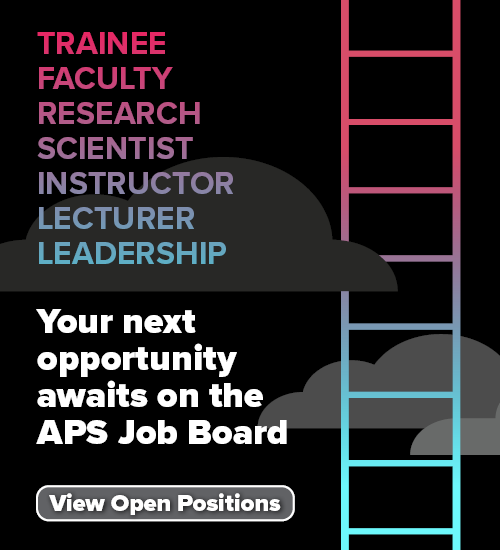- Membership & Community
-
Publications & News
- Physiology Journals
-
Newsroom
-
The Physiologist Magazine
- 2019
- 2020
- 2021
- 2022
- 2023
- 2024
-
In Depth
- In Depth—The Bear Necessities
- In Depth: Understanding Circadian Rhythms
- In Depth: Understanding Data
- In Depth: Exercise Physiology: Take Your Medicine at the Gym
- In Depth: Neurodegenerative Disorders
- Imaging Methods Unveil the Invisible
- Rewiring the Brain: Breakthroughs in Neural Therapy
- What’s Coming Next for GLP-1 and Metabolic Disease Treatment
- Understanding the Effects of Maternal Exercise
- How Muscles May Hold Cues to Better Sleep
- The Science Behind Breathwork and Mental Health
- How Science is Reframing Aging and Disease
-
Mentoring Forum
- Net Worth
- Take Care
- You … In Charge
- Work. It. Out.
- Working Off-site
- Location, Location, Location?
- Student Support
- Progressing to Postdoc
- Relationship Building
- Let’s Get It Started
- What Do We Value?
- It’s a Postdoc Life
- Coronavirus Contributions
- Creative Communications
- Selection Process
- Conference Connections
- Postdoc Appreciation
- Research Rewards
- Focus on Teaching
- Industry Insights
- Balance Beam
- Post Postdoc
- If You Build It
- Talk It Through
- Forward Bound
- I’ve Earned My PhD. Now What?
- University Life
- Tips for Trainees
- Time Travel
- Prepare Now for the Career You Want
- Landing a Postdoctoral Researcher Position
- Becoming a Physician-Scientist
- Mastering the Art of Science Communication
- Setting Yourself Up for Success in the Lab
- From Postdoc to Professor: Key Strategies for Success
- How to Stay Motivated in Challenging Times
- Staying Motivated Throughout Your Science Career
- Managing Stress and Workload During Your PhD
- Stay Passionate About Your Physiology Career
- Advice for Science Trainees in Uncertain Times
-
Policy IQ
- Policy IQ—2023 in Review: How APS Advocated on Behalf of Physiologists
- Policy IQ—Supporting Equitable Research
- NIH's Road Map to a Better Postdoc Experience
- The Career Path to Science Advocacy
- Culture of Safety: Stopping Sexual Misconduct
- Physiologists Return to Capitol Hill
- Tips for Scientists to Communicate about Animal Research
- Science Advocacy in a New Political Landscape
- Tips for Making the Call to Congress
- Science Spending Is an Investment
- Advocacy Up Close and Personal
- How Animal Research Advances Physiology and Medicine
- 5 Ways Physiologists Advocated for Science in a Challenging Year
-
Publish with Polish
- Publish with Polish
- The Layers of Open Science
- Take Your Content From Meeting to Manuscript
- APS Journals to Highlight Women’s Health Research
- What Subscribe to Open Means for APS Members
- The 5 Pillars of Publish with Purpose
- 3 Types of Metadata Researchers Should Know About
- Navigating Open Access and New Licensing Options
- Journal Manuscript Prep Made Easy
- How to Navigate Public Access Requirements
- Ensuring Public Trust in Publishing
- Improve Your Scientific Figures With APS and BioRender
- How APS Subscribe to Open Supports Accessible Research
-
Under the Microscope
- Equine Inspiration
- Inquiring Minds
- The Power of Teaching
- The Love of Physiology
- Understanding Women's Physiology Across the Lifespan
- Studying Human Health in Extreme Environments
- Advancing Kidney Health and Physiology Research
- How Gut Microbes Shape Blood Pressure and Drug Response
- Battling Malaria
- Exploring the Microbiome
- From Physics to Physiology: A Scientist's Unconventional Journey
- Finding Meaning in Exercise Physiology and Healthy Aging
- Mentoring Q&A
- Evolution
- Baseline by Scott Steen, CAE, FASAE
- 2025
- 2026
- Find Us on Social Media
-
The Physiologist Magazine
-
Professional Development
-
Meetings & Events
-
American Physiology Summit
- #APS2024 Overview
- Abstracts
- Awards at the Summit
- Award Lectures
- Career Networking Lunch Form
- Dates and Deadlines
- Hotel Information
- International Travel Information for Summit Attendees
- Industry Partners
- Physical Poster Information
- American Physiology Summit PhysioHub
- Pre-Summit Events
- Registration
- Section & Group Banquet Tickets
- Social Events
- Speaker Audiovisual Instructions
- Summit FAQs
- Travel & Transportation
- Liability Waiver
- Joseph Erlanger: Pioneering Nerve Research and APS Leadership
- Scientific Integrity Policy
- Exhibitor Registration Form
- Keynote Speaker Tracy L. Bale, PhD
- Keynote Speaker Jennifer Lippincott-Schwartz, PhD
- Career Day Workshop: Own Your Path, Positioning for the Career That Fits You
- Summit Status and Safety Update
- From Concept to Classroom
- New Trends in Sex Differences and Women’s Health Research
- Control of Renal Function in Health and Disease
- Comparative Physiology Conference
- Webinars
- Future APS Conferences
- Conference Policies
-
American Physiology Summit
- APS Awards
-
Career & Professional Development
-
Career Gateway
-
Resources
- Transcript—Leading Through Conflict and Difficult Conversations
- Transcript—Managing Conflict with Colleagues
- Transcript—Leading a Team Through Conflict
- Transcript—Providing Difficult Feedback
- Transcript—Team Dynamics and Culture Primer
- Transcript—Building a Team
- Transcript—Leading a Team Assigned to You
- Transcript—Creating a Team Culture
-
Resources
- Career Navigator
- Center for Physiology Education
- Virtual Courses
- Physiology Job Board
- APS Graduate Physiology & Biomedical Science Catalog
-
Career Gateway
-
Meetings & Events
-
Advocacy & Resources
- Science Policy
-
Resources
- Researcher Resources
- Educator Resources
- Trainee Resources
- Student Resources
-
APS Graduate Physiology & Biomedical Science Catalog
- Des Moines University
- George Washington University
- Michigan State University
- New York Medical College
- Pennsylvania State University
- Texas A&M University
- Texas A&M University Medical Physiology
- University of Alabama at Birmingham
- University at Buffalo
- University of Colorado
- University of Michigan
- University of Minnesota
- University of Missouri-Pathobiology and Integrative Biomedical Sciences
- University of Nebraska Medical Center
- University of Nevada, Reno
- University of South Carolina School of Medicine
- University of Tennessee Health Science Center (UTHSC)
- University of Texas Health Science Center
- Virginia Commonwealth University
- Wayne State University
- Physiology Department Catalog Submission Form
- Boston University
- Career Gateway
- Major Initiatives
- About APS
Physiology is...
Physiology is the study of how the human body works both when you’re healthy and when you’re not. When you’re sick or injured, normal physiology is disrupted. Physiologists often work as part of a team with medical care providers, pharmaceutical companies and other related professionals. This integrative physiology approach brings together a joint understanding of the body’s systems in a “whole body” approach to help us stay as healthy as we can throughout our lives.
Physiology is generally divided into 10 organ systems that perform different functions in the body. Each body system works with the others to keep us alive. Let’s look at the main body systems that physiologists study a bit more detail.
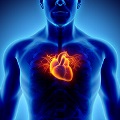 Your heart and blood vessels make up your cardiovascular system. The cardiovascular system’s job is to pump blood around your body, bringing oxygen and other nutrients to the cells and removing waste products.
Your heart and blood vessels make up your cardiovascular system. The cardiovascular system’s job is to pump blood around your body, bringing oxygen and other nutrients to the cells and removing waste products.
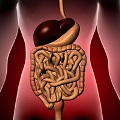 Many organs, including the stomach and intestines, make up your digestive system. The digestive system breaks down the food you eat into nutrients your body can use.
Many organs, including the stomach and intestines, make up your digestive system. The digestive system breaks down the food you eat into nutrients your body can use.
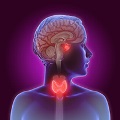 Glands located throughout the body make up your endocrine system and secrete chemicals called hormones. The endocrine system regulates the internal environment of the body, including growth and metabolism.
Glands located throughout the body make up your endocrine system and secrete chemicals called hormones. The endocrine system regulates the internal environment of the body, including growth and metabolism.
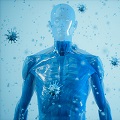 A series of defense mechanisms that protect your body from outside invaders and diseases makes up your immune system.
A series of defense mechanisms that protect your body from outside invaders and diseases makes up your immune system.
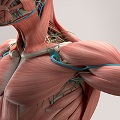 Your muscles make up your muscular system, which allows you to move, stand upright and breathe..
Your muscles make up your muscular system, which allows you to move, stand upright and breathe..
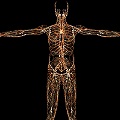 The brain, spinal cord and a system of nerves that extend throughout your body make up the nervous system. It’s a control center for all the
other physiological systems and allows other body systems to communicate with each other.
The brain, spinal cord and a system of nerves that extend throughout your body make up the nervous system. It’s a control center for all the
other physiological systems and allows other body systems to communicate with each other.
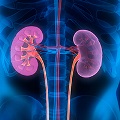 The kidneys are the main focus of the renal system. The renal system regulates fluids in the body, filters toxins from the blood and excretes waste.
The kidneys are the main focus of the renal system. The renal system regulates fluids in the body, filters toxins from the blood and excretes waste.
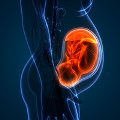 Sex organs called gonads and other supporting organs make up the reproductive system. The goal of the reproductive system is to produce offspring
to ensure the survival of the species.
Sex organs called gonads and other supporting organs make up the reproductive system. The goal of the reproductive system is to produce offspring
to ensure the survival of the species.
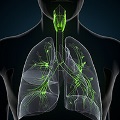 The respiratory system consists of your lungs and a system of airways that connects your lungs to the outside of your body. The respiratory system’s job is to bring oxygen into your body and to remove carbon dioxide.
The respiratory system consists of your lungs and a system of airways that connects your lungs to the outside of your body. The respiratory system’s job is to bring oxygen into your body and to remove carbon dioxide.
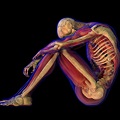 Your skeletal system is made up of your bones, joints, cartilage and connective tissues. This framework gives structure to the rest of your body.
Your skeletal system is made up of your bones, joints, cartilage and connective tissues. This framework gives structure to the rest of your body.

Physiology is built on concepts that explore how different areas of the body work together and answer questions, like why we itch or why women have a harder time losing weight than men. Physiologists also study how outside factors influence your health, such as how living or traveling in high altitudes can affect your gastrointestinal system. American Physiological Society members write about a wide range of topics, including how enjoying a glass of wine could protect your heart, and what space travel does to astronauts’ bodies, on the I Spy Physiology blog.
Browse the posts below to learn more about what physiology is.


